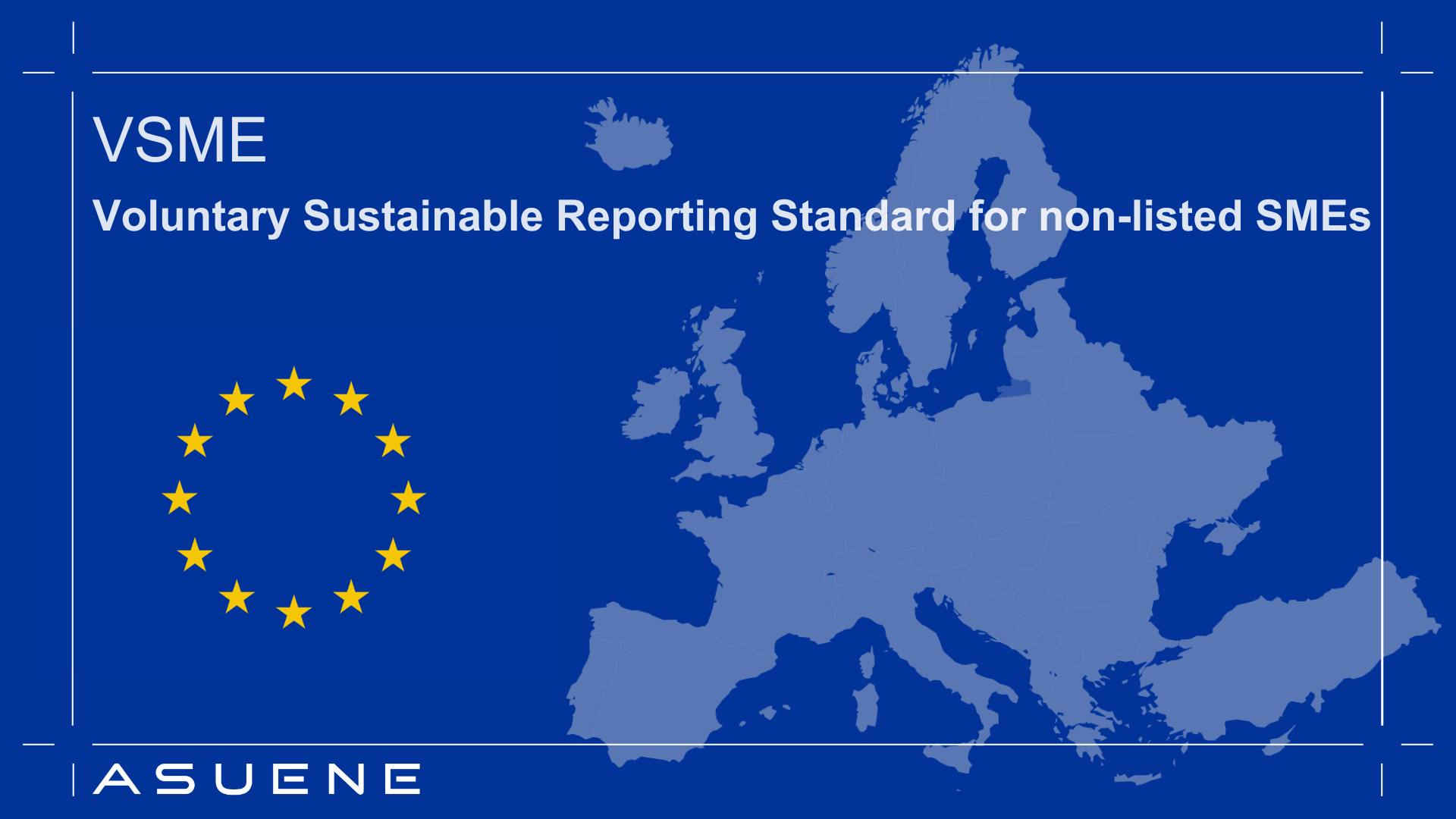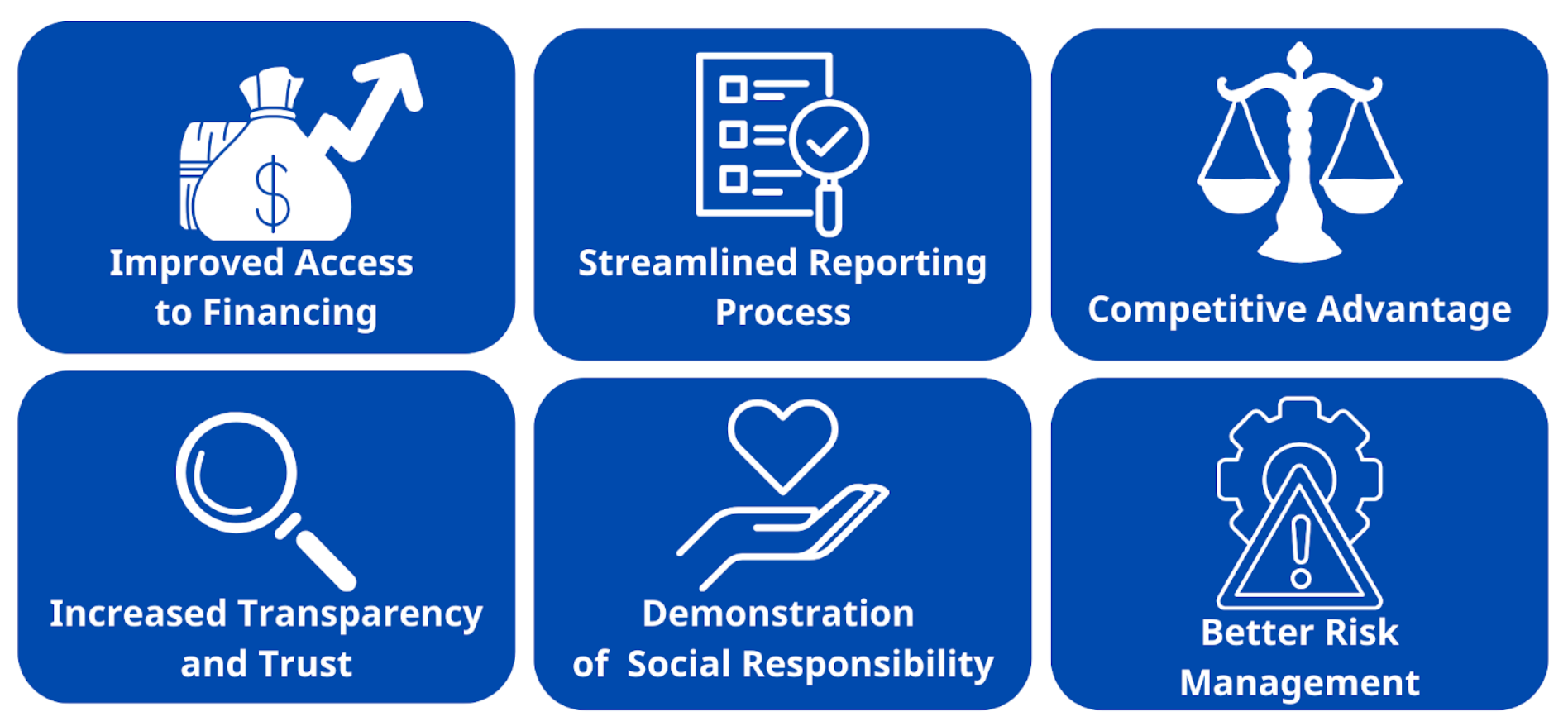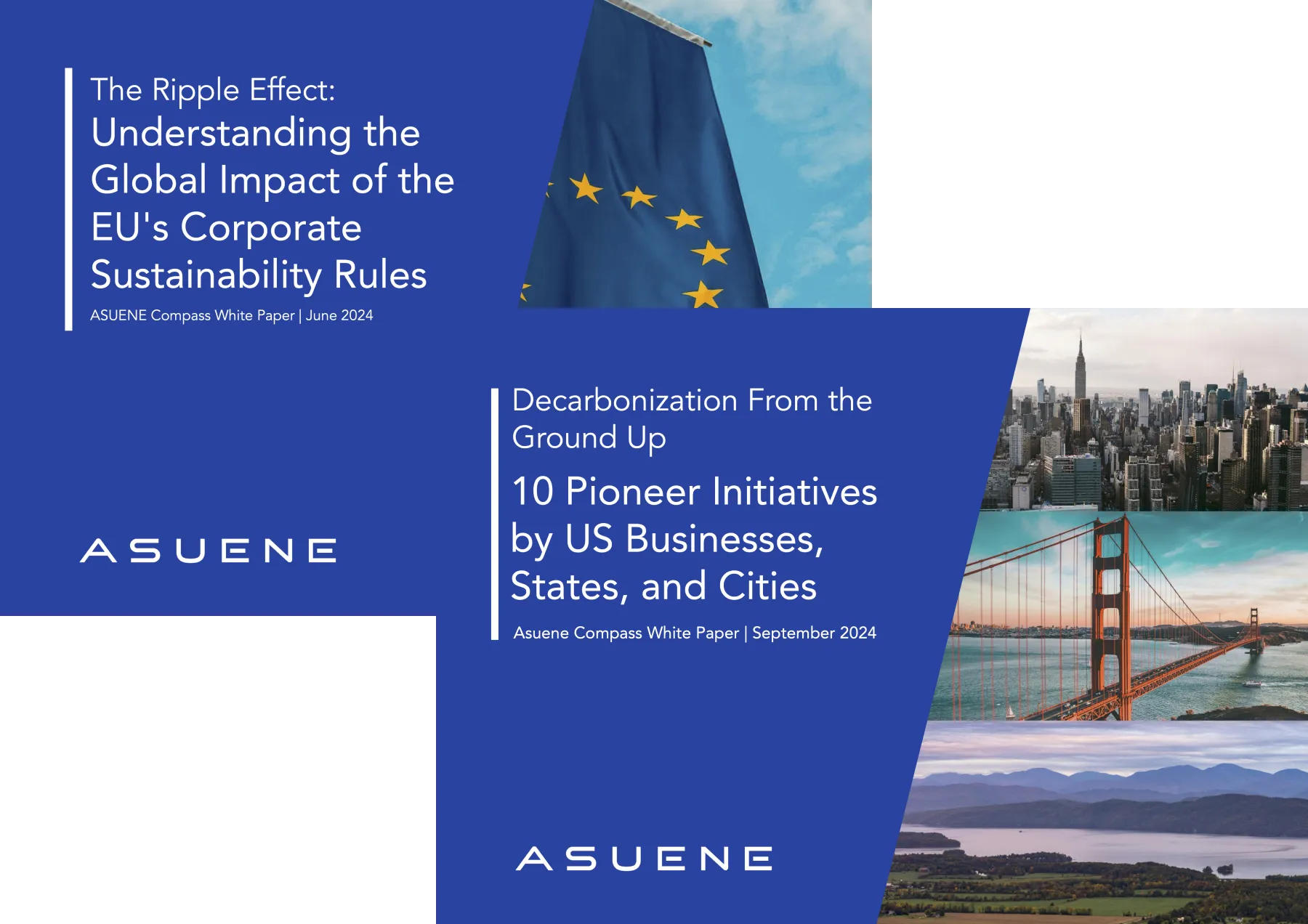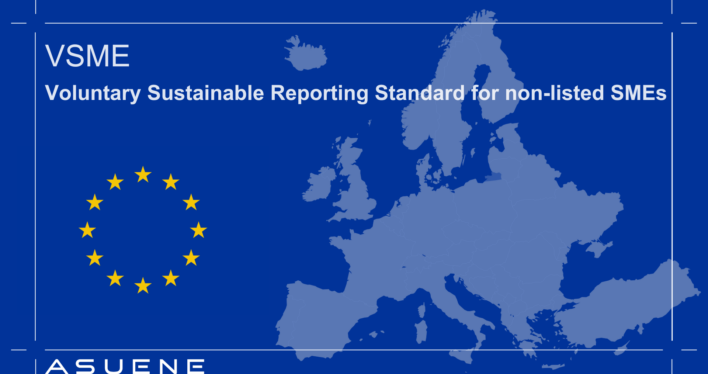- Article Summary
-

What is VSME?
The Voluntary Sustainable Reporting Standard for non-listed SMEs (VSME) is a new sustainability reporting framework introduced by the European Financial Reporting Advisory Group (EFRAG).
This standard is specifically designed for micro to medium-sized enterprises that are not subject to the Corporate Sustainability Reporting Directive (CSRD). Even though these companies are not legally required to comply with CSRD, VSME provides them with a structured way to disclose Environmental, Social, and Governance (ESG) information.
Objectives of VSME
- Standardizing ESG reporting: Helps streamline and organize sustainability data collection, eliminating fragmented and inconsistent reporting requests.
- Enhancing sustainability practices: Encourages SMEs to integrate sustainability into their business strategies.
- Improving access to financing: Establishes credibility with investors and financial institutions by providing clear and structured ESG data.
While participation in VSME is voluntary, companies are encouraged to adopt it to improve their sustainability efforts and strengthen their market position.
Structure of VSME (Two Modules)
VSME consists of two modules, allowing companies to choose the level of reporting based on their size and available resources.
(1) Basic Module
Target: Micro enterprises or companies with limited resources.
Features:
- Focuses on fundamental ESG metrics that are easier to collect.
- Serves as a foundation for ESG reporting, enabling companies to transition to the Comprehensive Module if more detailed reporting is needed.
(2) Comprehensive Module
Target: Small and medium-sized enterprises looking to provide more detailed ESG disclosures.
Features:
- Includes all elements from the Basic Module, plus additional in-depth ESG reporting requirements.
- Covers risk and opportunity analysis, providing a clearer picture of a company’s sustainability performance.
- More resource-intensive than the Basic Module but offers greater credibility and appeal to investors and stakeholders.

Key Requirements in the Basic Module
Environmental:
- Metrics such as energy consumption, water usage, waste management, and GHG emissions.
- For GHG emissions, report Scope 1 and Scope 2.
- Disclosure on the application of circular economy principles.
Social:
- Workforce metrics, such as general characteristics, health and safety, and remuneration.
- These include but are not limited to the number of employees, work related accidents, pay, and training hours.
Governance:
- Convictions and fines for bribery and corruption.
Key Requirements in the Comprehensive Module
| Basic Module | Comprehensive Module | |
| Environmental | Energy ConsumptionWater UsageScope 1 and Scope 2 EmissionsCircular Economy Principles Adopted | Basic Module+Scope 3 EmissionsGHG Reduction TargetsClimate Change HazardsMitigation Efforts |
| Social | General CharacteristicsWork Related AccidentsPayTraining Hours | Basic Module+Female-to-Male RatioNumber of Self Employed MembersNumber of Temporary EmployeesHuman Rights PoliciesSevere Negative Human Rights Incidents, if any |
| Governance | Convictions or Fines for Bribery or Corruption | Basic Module+Revenues from any Controversial SectorsRevenue from outside EU Reference BenchmarksGender Diversity Ratio in the Governance Body, if any |
| Sustainability Related Initiatives | n/a | Business Model and StrategiesBusiness RelationshipsPolicies for Sustainable Economy |
Environmental:
- Expansion of the Basic Module.
- Report on Scope 3 emission that was omitted from the Basic Module.
- Any GHG emissions reduction targets and plans to meet said targets.
- Any related climate change hazards, adoption of mitigation actions, and any adverse effects of such hazardous events.
Social:
- Additional information on top of the Basic Module.
- When 50 or more employees, disclose female-to-male ratio, self employed members, and temporary employees.
- Answer questions on human rights policies, such as what the policies implemented are and incidents of severe negative human rights incidents.
Governance:
- Disclose revenues from controversial sectors and those outside EU reference benchmarks.
- Gender diversity ratio in the governance body, if any.
Sustainability Related Initiatives:
- Business model and strategy, business relationships, and any sustainability issues.
- Policies or future initiatives for a sustainable economy. A template is available for this.
Why should you adopt the VSME standard?
Adopting the VSME standard goes beyond regulatory compliance; it enhances corporate competitiveness and risk management. Below are the key benefits of implementing VSME:

1. Improved Access to Financing
- ESG factors are increasingly becoming key investment criteria.
- Transparent ESG reporting builds trust with investors and financial institutions, making it easier to secure funding.
2. Enhanced Transparency and Trust
- A standardized reporting framework strengthens relationships with stakeholders.
- Improved corporate reputation through consistent and reliable ESG disclosures.
3. Competitive Advantage
- Differentiation from companies that have not yet aligned with ESG reporting standards.
- Better market positioning in sustainability-conscious industries.
4. Risk Identification and Management
- Early detection of ESG risks allows companies to take proactive measures.
- Strengthens long-term business sustainability and resilience.
5. Streamlined Reporting Process
- Standardized reporting reduces administrative burdens and improves efficiency.
- Prepares companies for future regulatory compliance as they grow.
6. Demonstration of Social Responsibility and Ethical Leadership
- Actively engaging in ESG initiatives strengthens corporate social responsibility (CSR).
- Fosters a positive corporate culture and enhances brand credibility.
By implementing the VSME standard, companies can build a sustainability-driven business strategy, achieve long-term growth, and enhance their market competitiveness.
Optimize VSME Reporting with Asuene
Accurate and efficient VSME reporting requires expertise and structured data management. Asuene Inc. provides tailored solutions to help SMEs successfully comply with the VSME standard and enhance their ESG reporting.
1. Expert Guidance and Consultation
- Customized reporting plans tailored to company size and industry.
- Training programs to ensure understanding of VSME requirements and data collection methods.
2. Data Collection and Reporting Support
- Data management tools to streamline ESG data collection and reporting.
- Pre-designed reporting templates aligned with VSME standards for consistent reporting.
- Third-party verification assistance to enhance report credibility.
3. Continuous Monitoring and Compliance Adaptation
- Regular progress tracking and data validation to ensure accuracy.
- Support for regulatory updates, minimizing future compliance risks.
4. Development of Sustainability Strategies
- Long-term sustainability strategies with clear environmental, social, and governance (ESG) goals.
- Risk and opportunity assessments to align ESG initiatives with financial objectives.

Perfect the VSME standard with Asuene
Navigating the complexities of sustainability reporting can be a daunting task for SMEs, especially those that are new to the process or lack dedicated resources. This is where Asuene Inc can provide invaluable support in ensuring that your company meets the requirements of the VSME reporting standard effectively and efficiently.
Why Choose Asuene for VSME Reporting?
✔ Proven expertise in sustainability consulting and ESG reporting.
✔ Tailored solutions based on the unique needs and challenges of each business.
✔ Efficient processes to save time and resources while ensuring full compliance.
✔ Long-term partnership to support sustainable business growth.
By partnering with Asuene Inc., companies can seamlessly navigate the VSME reporting process, optimize sustainability efforts, and position themselves for long-term success in an evolving business landscape.
